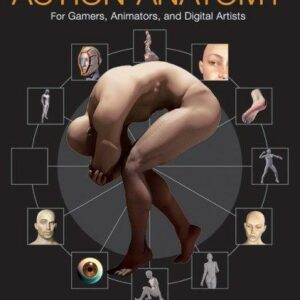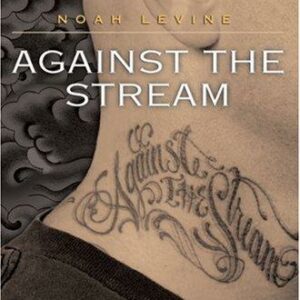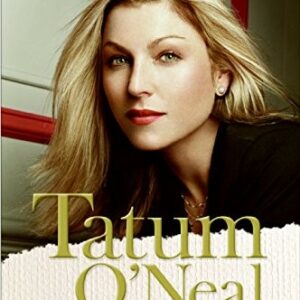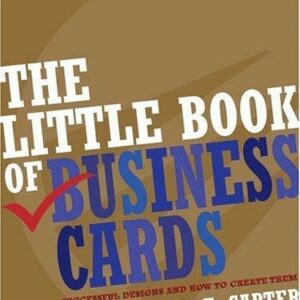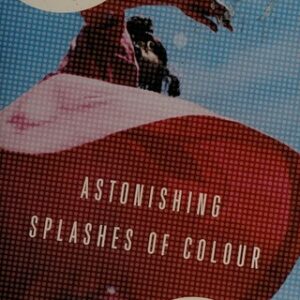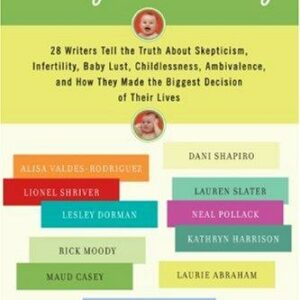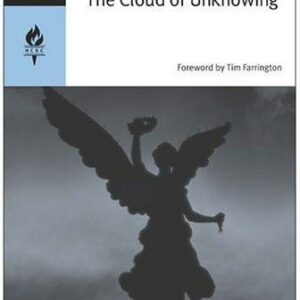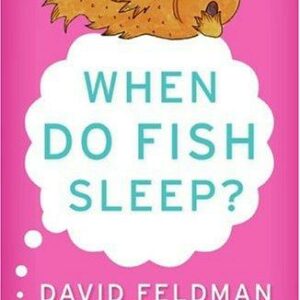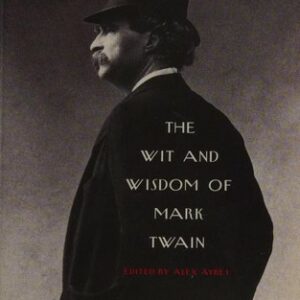Tacky
$17.00
| Title | Range | Discount |
|---|---|---|
| Trade Discount | 5 + | 25% |
- Description
- Additional information
Description
An irreverent and charming collection of deeply personal essays about the joys of low pop culture and bad taste, exploring coming of age in the 2000s in the age of Hot Topic, Creed, and frosted lip gloss—from the James Beard Award-nominated writer of the Catapult column “Store-Bought Is Fine”
Tacky is about the power of pop culture—like any art—to imprint itself on our lives and shape our experiences, no matter one’s commitment to “good” taste. These fourteen essays are a nostalgia-soaked antidote to the millennial generation’s obsession with irony, putting the aesthetics we hate to love—snakeskin pants, Sex and the City, Cheesecake Factory’s gargantuan menu—into kinder and sharper perspective.
Each essay revolves around a different maligned (and yet, Rax would argue, vital) cultural artifact, providing thoughtful, even romantic meditations on desire, love, and the power of nostalgia. An essay about the gym-tan-laundry exuberance of Jersey Shore morphs into an excavation of grief over the death of her father; in “You Wanna Be On Top,” Rax writes about friendship and early aughts girlhood; in another, Guy Fieri helps her heal from an abusive relationship.
The result is a collection that captures the personal and generational experience of finding joy in caring just a little too much with clarity, heartfelt honesty, and Rax King’s trademark humor.
A VINTAGE ORIGINALONE OF THE BEST BOOKS OF THE YEAR: NPR, Bloomberg, KIRKUS
“Ebullient . . . What [feels] new is the glitter and squalor and joy and exactness in King’s writing . . . It reads like sequential shots of Fireball Cinnamon Whisky. King has unfettered access to her mind at 14 or 15. Her ‘Ode to Warm Vanilla Sugar’ is in league, as coming-of-age essays go, with Nora Ephron’s ‘A Few Words About Breasts’ . . . Like Katie Roiphe, King arrives in praise of messy lives. Like Toni Morrison in Song of Solomon, she advises: ‘You got a life? Live it!’ . . . So winsome is the writing in Tacky that, most of the time, there’s no other word for it but classy.”
—New York Times
“Tacky is a Trojan horse of a book—it’ll charge into your life with acute, laugh-out-loud observations, then leave you crying about the Cheesecake Factory. Prepare accordingly.”
—Esquire’s “The Best Books of Fall 2021”
“These sharp, deeply insightful and laugh-out-loud meditations on modern Americana, from the Cheesecake Factory to Jersey Shore, add up to pop-culture anthropology.”
—People
“Reading Rax King’s writing feels like eating fettuccine alfredo at The Cheesecake Factory. Guzzling down the cream-coated ’00s mall nostalgia, you can’t help but smile between bites . . . King treats pop culture relics as an archaeologist would, at once reverential and eager to understand.”
—Bustle
“Tacky is a very funny book. Not just funny, I mean, SERIOUSLY FUNNY. King has the power to trick you into thinking you’ve got the joke all figured out, then suddenly reveals that you’re going to experience a wealth of tender, thought-provoking emotions and guess what? You’re gonna like it! On the sentence level, King’s a wizard; she’s able to wring the last drops of cool and sweet and sexy out of every moment. This isn’t a book you read. It wants to be devoured. Rax King is a supremely gifted writer and Tacky is a masterly ode to unfettered, unrestrained, and unrepentant joy.”
—Kristen Arnett, author of Mostly Dead Things
“I am thankful for Tacky for how it broadens my own considerations of popular culture, of shame, and of celebration. The meditations in the book are equal parts comical, heartbreaking, and revelatory. A monument to uplifting the parts of popular culture that might otherwise be shrugged off and/or dismissed by those who don’t have the imagination to celebrate what they might consider mundane. This book made me feel more at home with my obsessions, both small and large.”
—Hanif Abdurraqib, author of A Little Devil in America
“Goddamn, Rax really tore this shit up. THIS BOOK IS GOOD AS HELL.”
—Sam Irby, author of Wow, No Thank You.
“Tacky proves something to me that I’ve thought for a while: liking stuff that is bad actually means I’m smart. And it not only means I’m smart but it also means I’m a complicated individual with a vast interior life who is capable of deep, lasting love. Rax King turns cultural artifacts like Degrassi, ANTM, or Jersey Shore into timeless poetry served on a hilarious, horny dish that you’ll ugly-cry while eating because you’ll be thinking of the people in your life who have left, whether for a new person or the next world. Each essay burns brighter than Guy Fieri’s hair. This bitch has me crying to Creed.”
—Melissa Lozada-Oliva, author of Dreaming of You
“King is uniquely gifted at sorting out our simultaneous revulsion and fascination with American institutions, from the Cheesecake Factory to Hot Topic . . . King doesn’t shy away from pure emotion in her writing . . . Still, there’s no shortage of fun to be had in this essay collection, which dares to treat the things that so many people have always loved—from leopard-print clothing to Creed—as though they (gasp!) actually mattered.”
—Vogue
“Tacky approaches all our gaudiest, clumsiest, most embarrassing cultural artifacts—and, at the same time, all our gaudiest, clumsiest, most embarrassing human emotions—with the insight they’re rarely given, and the compassion they deserve. A piercing, sparkling rhinestone of a book.”
—Jess Zimmerman, author of Women and Other Monsters
“No one writes a sentence like Rax King, who stacks words atop one another like a mad Subway employee building the Tower of Babel out of deli meats and greasy lettuce. King writes about her obsessions, abjections and triumphs with a singular deftness and a deranged glee . . . Tacky is the friend who gets you wasted and then holds your hair while you puke, the slumber party host with whom you stay up talking too late to get any sleep at all, the stranger outside the venue who lets you bum a cigarette and asks if you want to get out of here and go have some real fun. In short, it’s a fucking blast. Thank god for Rax King, who proves time and again in this collection that the personal essay is alive and well and has some regrettable tattoos to show for it. My toe rings are off to her.
—Calvin Kasulke, author of Several People are Typing
“After reading Rax King’s boisterous, big-hearted Tacky, I’ll never look at Guy Fieri the same way again—but beyond that, King shifted the way I think about so many pop cultural phenomena of the past two decades. Her book is like a delicious funnel cake—dusted with frosty wit, soft and chewy in the middle, and I could not stop devouring it.”
—Rachel Syme
“Tacky is overflowing with Cheesecake Factory portions of humor, insight and tenderness. And you’ll read the whole thing faster than the Cheesecake Factory menu.”
—Josh Gondelman, author of Nice Try
“Rax King is one of the sharpest and funniest essayists you’ll ever read, and her debut is a bounteous feast of hilarity, tenderness, and nostalgia that will make you feel less alone in all of your own tacky joys and obsessions. Get it, read it, savor it like Guy Fieri savors the most beautiful burger you’ve ever seen. You deserve it.”
—Nicole Chung, author of All You Can Ever Know
“Tacky as a collection is not just a tribute to her skill as an essayist but a profound tribute to all things our culture has deemed low-brow . . . It’s King at her best: honest, funny and smart pop culture commentary with engrossing storytelling.”
—Alma
“Reading her essays is like finding the perfect lens for an honest and open look at the culture we often keep to ourselves for being too trivial . . . A cocktail of pop culture critique blended with memoir intonations that are always candid and just as often hilarious.”
—PBS Rewire
“Dishy . . . A manifesto of anti-snobbery . . . For bad girls with soft spots”
—Vulture
“Vibrant . . . In her keen debut, King taps into her lifelong love affair with low culture in this joyful tribute to the tacky . . . Fearless . . . King deploys a reliably consistent blend of humor, emotion, and insight . . . An engaging, hilarious, unabashed look at what we love in culture and why we should value it for what it is.”
—Kirkus Reviews (starred)
“Charming . . . The emotion that runs throughout [Tacky] makes for a powerful antidote to jaded nonchalance . . . King’s witty, conversational dip into nostalgia is a delight.”
—Publishers Weekly (starred)
“King’s prose is murderously fizzy, like movie-theater soda pop that dances a little bit in your nostrils right after you’ve taken a sip. At her best, she’s kind of like the Eve Babitz of the Y2K-era shopping mall . . . King is so fun on the page that you almost don’t realize how sharp and emotionally observant she can be, too . . . [A] deeply felt, vividly conjured memoir.”
—BookForum
“In Tacky, King flips the script and instead shows readers that just because something is tacky doesn’t mean that it doesn’t have value. Instead, the things that we are so quick to judge are the very things that can help us heal from traumatic breakups or bring joy to our lives if we’re only willing to look past our own shallowness. Rax King has done it. Most importantly, she has done it well.”
—Real Simple
“King explores growing up in the 2000s and leaning in to parts of culture that are often disparaged. This is a memoir soaked in the dying mall culture of the early aughts, smelling of burnt hairspray and self-tanner. Basted in Cinnabon icing and coated in glittery lip gloss, King’s book explores the joy of low culture. It would be a great addition for libraries looking to expand their memoir collections and appeal to millennial audiences.”
—Library Journal (starred)
“Most writers are boring people. King, though, seems different: Bettie Page meets Carrie Bradshaw, if Bradshaw supported Bernie Sanders for president and sometimes wore an Old Bay-patterned bikini . . . It’s in her writing about sex and sexuality where King’s voice really shines. I have yet to encounter another writer who has so neatly captured what it was like to be a girl during that reactionary cultural period in which I grew up . . . King writes acutely, and sometimes heartbreakingly, about her developing sexuality, the cues she took from pop culture about how to make herself more desirable for consumption . . . There’s much to admire — and, for a kind of pop-culture-loving millennial, it will hit all the right notes.”
—Wall Street JournalRAX KING is a James Beard award-nominated writer and host of the podcast Low Culture Boil. Her writing can be found in Glamour, MEL Magazine, Catapult, and elsewhere. She lives in Brooklyn, NY with her hedgehog and toothless Pekingese.Introduction
I always thought of “tacky” as my mother’s word, and at eight, I didn’t quite know what it meant. In fact, at twenty-eight, I still don’t really know what it means, though like Supreme Court Justice Stewart once said of the threshold for obscenity, I know it when I see it. But I hadn’t yet seen it enough to wrap the word into an appropriate context in my mind. I mostly heard my mother use it when speaking about my father’s mother, a glamorous woman whom I believed was the absolute coolest. I liked watching her chain-smoke and hand my dad his ass in games of Scrabble, though I liked it less and threw occasional temper tantrums when she handed me my own ass in Scrabble. My tantrums seemed to galvanize her. She always responded to them by pointing at me and laughing, taunting me with a chant of “Aries moon, Aries moon!” until I either cried or shut up. Having been a professional astrologer for decades, she had one answer to all my most annoying behavior, be it my sore loser tendencies or my stubborn refusal to take a joke that was made at my expense, which was that my Aries moon was responsible.
Still, I liked exploring her musty Miami condo and checking out all the badass old lady stuff she had: piles of furs that her gangster husband had bought her, entire libraries’ worth of books about Tarot and palmistry, four full boxes of real jewelry that looked fake. Her jewelry alone, she’d once bragged, was so heavy that she’d had to tip her movers extra. To this day, I look back on that statement and think about how baller it is.
My mother had her issues with her mother-in-law, because this was the ‘90s and everybody hated their wives and mothers-in-law with all their hearts, if the era’s stand-up comedy is to be believed. But when she really wanted to cut my bubbe down to size, she’d bust out one particular insult. “Your Grandi is just tacky-tacky-tacky!” she’d say to me, her voice jumping into its shrillest register with each ‘tacky.’ “I mean it. Tacky-tacky-tacky-tacky-tacky!”
All that said, I wasn’t worried about the central tenets of tackiness as an eight-year-old. My thoughts were firmly on the school talent show, where my then-best friend Maria and I planned to sing and perform an Irish jig to a B*Witched song. We couldn’t sing and did not know how to dance any traditional Irish dances, but we weren’t about to let that hold us back. A lot was riding on this: our reputations, our love for B*Witched, our ability to wear glittery costumes. This last item was, I suspect, our primary motivator: my mother had taken us to a Michael’s craft supply store once, where she’d made the mistake of letting us see the store’s selection of fabric paint. My mother refused to stock a single tube of the stuff in her house, correctly believing that I would immediately turn it on all my most hated child formalwear. But now that we had an act for which we needed to costume ourselves, our desire for the fabric paint was legitimized. My mother grudgingly purchased us a couple tubes, along with some white T-shirts.
“So what are you going to paint?” she asked us, a lifelong artist herself. “Polka dots, stripes?”
Maria and I hadn’t thought that far, and looked at each other.
“Princesses,” I said, at the same time that Maria said, “Jewels.”
My mother chuckled. “Sounds good.”
At home, we promptly went apeshit, drawing vast squiggling fuckeries all over those poor white T-shirts. I do think we were making an honest effort to draw actual things, since we had developed our princesses/jewels theme a little more in post-production and decided that we would dress as actual members of B*Witched. I would be either Edele or Keavy (they were identical twins and my obsession with the band did not extend so far that I could tell them apart). Maria wanted to be Sinead, but I pointed out that it wasn’t fair for either of us to be blonde Sinead, since we both had dark hair. So she settled on being either Keavy or Edele, whichever one I wasn’t. Clearly, we were running a tight ship.
You couldn’t have told us that our shirts looked like shit, of course. It would have been roughly as effective as it ever is to tell your friend that the guy who’s been giving her the best dick of her life is a jerk. We were in love with our shirts. I fell momentarily out of love when I determined that the dog had stepped on my shirt while it was drying and left a pawprint. But fortunately Maria liked the pawprint and switched shirts with me, so I got to fall right back in love again. As we modeled our shirts for each other, imitating the dances that we’d seen the B*Witched girls do onstage, it occurred to us that we looked amazing.
Then my mom came in the room and burst out cry-laughing. I’d never seen her go from zero to a hundred that quickly: one moment, she was leaning against the doorway; the next, she was losing her make-up all over her cheeks, red in the face and guffawing.
“Mom!” I said, watching her collapse.
“Oh my God, I can’t breathe!” she said. I thought, Good. Then you’ll die! And it’ll serve you right!
It took her a minute, but her laughter eventually petered out to chuckling and then “aaah”-ing. “I’m sorry,” she finally said, flicking a tear from her eye. That was how she thought she could save her eye make-up when she cried, though it was too late this time. “It’s just. I’m sorry. You just look so tacky!”
Hearing my mother’s dearest insult directed at me that day, when I knew I looked the best I could ever possibly look, I decided that I would make my life a monument to . . . to whatever the hell ‘tacky’ was, because I still didn’t know. Tacky, as far as I was concerned, was the manna of the world. The alpha, the omega. My mother only ever said it about awesome things; if I wanted to become awesome myself, ‘tacky’ was the answer. Potentially high off paint fumes and unequivocally drunk off my rage at my mother’s lack of taste, I had inadvertently stumbled ass-over-elbow onto the path where I’ve stayed ever since.
It was the first time ‘tacky’ was directed at me, but it wouldn’t be the last. And every time I heard it, my determination was fortified. Everything worth doing, it seemed to me, was tacky-tacky-tacky: wearing pinstriped denim overalls over a red sports bra. Shotgunning brick weed into my hot friend Adam’s mouth in Bishop’s Garden. Repurposing my toe rings as pinky rings during the winter months, which I sincerely believed was just smart jewelry ownership. It occurred to me that being tacky was, in some sense, the opposite of being right. And being right was hard, and thankless, and involved so much tasteful covering of the very tits that I’d prayed for throughout puberty until finally the fuckers sprang out of my chest seemingly overnight. Why should I put all that work into being right, when the alternative was so much more fun?
For over a decade, I’ve cultivated my understanding that the rightness so many intelligent, capable people pursue does not actually matter one bit. This book is the fruit of all my research into the opposite of what is right. I mean, I call it “research,” and it’s true that I’ve read books and watched movies and whatnot, but most of that research has taken place in and around my body. The work of tackiness belongs to lived experience anyway! Would you trust someone to talk convincingly about tackiness if that person had never dated an adult man who called himself Viper and believed that showers were a conspiracy inherited from the Nazi government? If that person never passed out in a strip club bathroom, came to, and immediately vomited on her ex-girlfriend’s Pleasers to the raucous laughter of all her fellow strippers?
As far as I’m concerned, tackiness is joyfulness. To be proudly tacky, your aperture for all the too-much feelings—angst, desire, joy—must be all the way open. You’ve got to be so much more ready to feel everything than anyone probably wants to be. It’s a brutal way to live.
What fruits will you reap? Well, you’ll do a lot of stuff and be a lot of fun at parties. Your friends will be exhausted; you’ll need to make, like, six additional friends because they’ll have to work in shifts to accommodate the amount of time you’ll spend in emotional crisis. You’ll believe that Spice World never did get its fair shake as a piece of effective satire. Your friend will Venmo you for the cost of replacing her curtain, into which you’ll burn a cigarette hole while gesturing a little too wildly during a conversation about Puddle of Mudd. Oh, you’ll be the sort of person who gestures a little too wildly with a cigarette during a conversation about Puddle of Mudd. And you’ll be a relentless optimist.
Tackiness is about becoming: it’s hard to access all those too-much feelings if you believe you’re already done growing, but it’s the easiest thing in the world when you’re constantly poking your head around corners looking for what’s next. Maria and I, we didn’t know how to dance. We couldn’t sing worth a damn. We barely knew the words to the song that we’d decided to perform. After that day, we had to admit that we were no longer even interested in fabric paint, because we hadn’t counted on what a pain in the ass it would be to use. We were constantly poking our little heads around corners, full of childish thrills at the idea of the next thing and yet so young that we couldn’t even predict what that thing would be.
In that moment, standing there being roasted by my mother, the next thing wasn’t so great. We made asses of ourselves at the talent show. We stopped speaking in fifth grade. The last update I had on Maria’s life was that she got a belly button ring, which I approve of, the belly button being the tackiest of piercings. As for me, I launched from that moment into a life of pining after unsuitable boys and surreptitiously listening to music that those boys would have scoffed at. I wanted so badly to be respectable and believed for years that I really could get there. I drank (well, drink) too much and smoked (well, smoke) too much weed in pursuit of a quiet mind. To this day, my mind is the fireworks on the Fourth of July. But who cares? I’m comfortable now.
My friend Hillel recommended that I say here what I hope people learn from this book, because everybody wants to buy a book and then read a book report called “What I Hope People Learn From My Book by Rax King (age eight and one half)” at the beginning of that book. No, I’m just joshing. It’s not a bad idea. I hope that people learn how to have a fun time with the things they love, even the silly-seeming ones, before it’s too late. And in truth, I’m unqualified to teach anybody anything other than precisely that, anyway.US
Additional information
| Weight | 7.4 oz |
|---|---|
| Dimensions | 0.6200 × 5.1000 × 7.9000 in |
| Imprint | |
| Format | |
| ISBN-13 | |
| ISBN-10 | |
| Author | |
| Audience | |
| BISAC | |
| Subjects | best books 2021, White Elephant gifts, book lover, feminist gifts, npr book list, love letters, popular books, mom books, funny gifts for mom, books best sellers for women, great gatsby, books for women, creed, gifts for older women, maid of honor gift, the king, rax king, tacky book, tacky rax king, womens gifts unique, degrassi, tacky, memory, book, ART023000, BIO026000, queen, Memoir, music, creativity, sex, love, Friendship, Books, coming of age, gifts for women, funny books, jokes, jersey shore, pop culture, biographies, coffee table books, memoirs |


